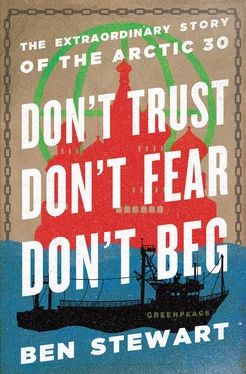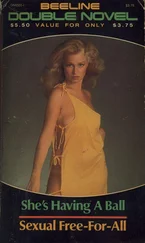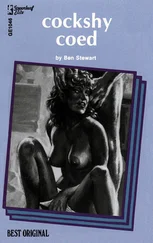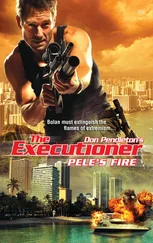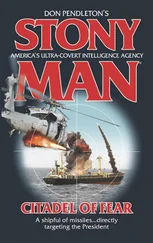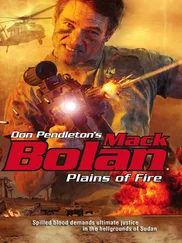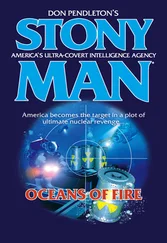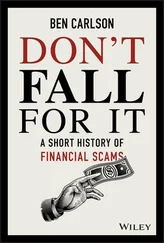‘By the way Martin, we’re not funded by the CIA. The CIA hates us too.’
‘I know that. What was I saying? Yes… if you demonise your opponent and show you’re tough with them, like they were tough with Pussy Riot and your guys, then it’s clear that the Russian state is standing up for the Russian people against its external enemies. You, Pussy Riot, the CIA. It’s a political PR strategy and an energy strategy. You need to understand that. Putin’s PR rating rose tremendously around Pussy Riot, people completely approved of that. Okay, so the metropolitan elites in St Petersburg and Moscow might think it’s a bit hard sending those poor Greenpeace protesters to jail, or sending those girls playing their guitars to jail. But in the provinces people love that. Ivan and Masha out in the sticks, they’ll be loving this.’
‘Really?’
‘You bet.’
He looks at his watch. Time is up.
‘You have to go?’
‘I’m afraid so.’
Ruth Davis folds her notebook. ‘Thank you so much.’
Sixsmith shrugs. ‘No problem. And don’t worry too much. He won’t keep them in for the Olympics.’
‘No?’
‘Well, he might. But if he does, he’ll regret it.’
The campaign is deliberately not talking about Russia’s Winter Olympics, which are scheduled to start in four months. The diplomats are telling Greenpeace that the Sochi Games are Putin’s baby, that he’s so closely associated with them that threatening to push for a boycott or organising protests there would back him into a corner and he’d come out swinging. Phil already used Mr Babinski to smuggle out a design for a Sochi Arctic 30 campaign – the Olympic rings as handcuffs – and Ben Ayliffe, head of the Greenpeace global oil campaign, is working on a strategy document for how the campaign will use the Games if the activists are still inside when they start. But, like Putin-bashing, right now the Olympics are taboo in this campaign.
Ruth Davis walks to the Tube station, reading back through her notebook, satisfied that their political strategy is the right one but shaken by the confirmation of something she suspected – that they’re not even players at the chessboard, instead they’re on the board, pawns in a much bigger game. The way Sixsmith explained things, Arctic oil is integral to the long-term survival of the Putin regime, it’s Putin’s golden goose and Greenpeace just kicked it.
The next day Kumi Naidoo makes contact with an influential figure in the Russian opposition movement. Naidoo gives him the codename ‘Bagel’. When a meeting is secured Naidoo’s office tells him, ‘You have to go to the airport to have a bagel,’ and he rushes off to meet the man in an arrivals lounge. Bagel tells Naidoo that Greenpeace must appear strong. If the organisation pleads for the release of the thirty, they’ll never get out. Bagel says he respects how the campaign has been run so far.
‘Putin doesn’t respect weakness,’ he says. ‘You must never use the language of begging.’
Nevertheless, the campaign team starts working on a draft statement, to go in Naidoo’s name, apologising for the protest and undertaking not to return to the Russian Arctic. ‘Just in case,’ says Christensen. ‘It’s not something I ever want us to release, but if we have to, if that’s what it takes to get them out, then let’s at least have something ready.’
But for the campaign team there is simply no bearable way to write to Putin using the words ‘sorry’, or ‘we apologise’, or ‘we regret’. And, what’s more, if Greenpeace does apologise then some of the thirty will never forgive the organisation, even if it secures their freedom. Their families, on the other hand, will never forgive Greenpeace if they don’t.
For days they play with the language, but it’s impossible. Eventually Martin Sixsmith is consulted. Does he know any English phrases that sound contrite when translated into Russian but which in English are less cowering? Sixsmith laughs. ‘You know, if it comes to you having to say sorry, you don’t get to write the apology. Putin’s people write it for you. You just sign it.’
Vladimir Putin grew up in a tiny apartment in Leningrad with a picture of Felix Dzerzhinsky – the founder of the Cheka, forerunner of the KGB – on his bedroom wall. He led a thuggish childhood, getting into fistfights and abusing teachers. ‘I was a hooligan,’ he later admitted – an irony not lost on the numerous opponents of his regime who have been accused of hooliganism, the Investigative Committee’s catch-all charge for political dissent.
In 1968 – the year Pavel Litvinov lifted the Czechoslovak flag in Red Square – the sixteen-year-old Vladimir Putin applied to join the KGB. He later said he was inspired by the TV show The Sword and the Shield , in which secret policemen broke down doors the length and breadth of Russia to protect the nation from its enemies. The KGB told the boy he was too young to join, [66] Martin Sixsmith, Russia: A 1,000-year Chronicle of the Wild East (London, 2011), p. 510.
so instead he went to university to study law and successfully reapplied seven years later. His career progression was pedestrian but he eventually achieved a foreign posting in Dresden in East Germany, from where he witnessed the collapse of communist rule in Eastern Europe in 1989. Before the revolution was over he’d burned so many secret files that he broke the KGB’s incinerator. [67] Russia , p. 511.
In 1991 he left the service, although he later said, ‘A KGB officer never resigns. You can join but you can never leave.’ [68] Russia , p. 511.
As Russia slipped into economic and political chaos in the 1990s, Putin worked for the mayor of St Petersburg, securing for himself a reputation as an effective high-level bureaucrat. [69] Russia , p. 511.
By 1997 he was a government official living in Moscow and was taking an advanced economics degree. His dissertation, which extended to 218 pages, cogitated over the role of natural resources such as oil and gas in the Russian economy. The text was later declared classified, but Putin also wrote an article for a mining journal in which he summarised his thoughts. He wrote that Russia’s energy policy – indeed the return of the nation to great-power status – depended on the management of the country’s natural resources, which he valued at $28 trillion. Putin wrote of the urgent need to create Russian oil and gas companies that could compete with Western corporations. The government didn’t need to own them, he wrote, but it should be able to determine their long-term planning. [70] Charles Emmerson, The Future History of the Arctic (London, 2010), pp. 227–8.
In 1998 President Boris Yeltsin appointed Putin to head the FSB – the main successor organisation to the KGB – and a year later made him Prime Minister. [71] Russia , p. 511.
On 31 December 1999 Yeltsin resigned his office. He’d suffered illness for some time, been drunk at state occasions and epitomised the failures of the post-Soviet nineties. Addressing the nation he said, ‘As I go into retirement, I have signed a decree entrusting the duties of President of Russia to Vladimir Vladimirovich Putin.’ [72] Russia , p. 509.
Putin published a blueprint for his rule – Russia at the Turn of the Millennium . In it he stated: ‘Russia cannot become, say, the US or Britain, where liberal values have deep historic traditions. Our state and its institutions and structures have always played an exceptionally important role in the life of the country and its people. For Russians a strong state is not an anomaly to be got rid of. Quite the contrary, it is the source of order.’ [73] http://pages.uoregon.edu/kimball/Putin.htm
Читать дальше
